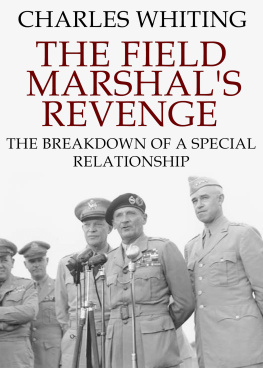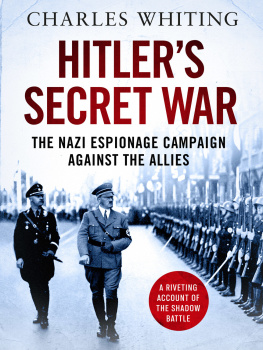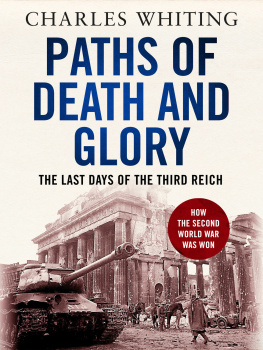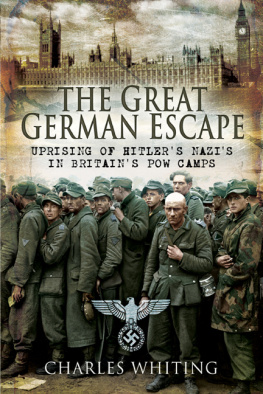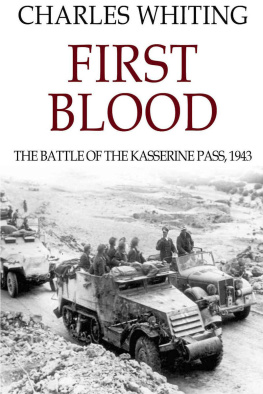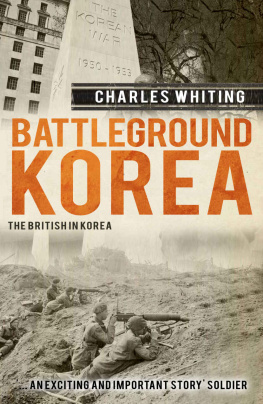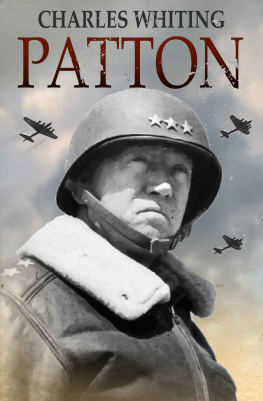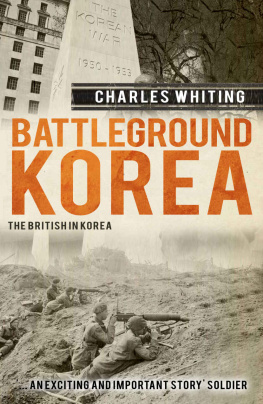The Field Marshal's Revenge
The Breakdown of a Special Relationship
Charles Whiting
Charles Whiting 2014.
Charles Whiting has asserted his rights under the Copyright, Design and Patents Act, 1988, to be identified as the author of this work.
First published in the UK in 2004 by Spellmount Limited.
This edition published in 2014 by Endeavour Press Ltd.
And if there is a moral to be drawn ... it is this. Brilliant military commanders do not come cheap. You have to pay the price. In this case in our soured relations with our principal ally. Nor do faithful allies come on the cheap. You have to pay the price. In this case, in the bigger dominating the smaller. And this, it may be said, was the political price which we are still paying off today.
Sir Carol Mather SAS, one of Montgomery's former 'eyes and ears'.
Table of Contents
Acknowledgements
I should like to thank in the USA: two 'good ole boys' who did the fighting, Tom Dickinson and Hy Schoor, veterans of the US 70th Infantry Division, and Mr Don Carmichael for his knowledge of Roosevelt; in the UK: my son Julian Whiting; my two fellow authors Carl Shiletto and Eric Taylor, survivors of North Africa, Sicily and Italy with the Infantry; the two veterans of the 13th Battalion of the Parachute Rgt, Major Jack Watson and Maj-General Sir Peter Downward KCVO, CB, DSO, DFC; Sir Carol Mather, SAS; in Belgium: Dr Paul Maquet and the Tourist Board of the Wallonie; and Mrs Gil Tidmus for her moral support.
Introduction
A brave fighting man under fire, and with that tenacity in battle which stamps a first class soldier; all these qualities have been shown in a marked degree during the present battle ... I salute the brave fighting man of America; I never want to fight alongside better soldiers ... I have tried to feel I am almost an American soldier myself so that I might take no unsuitable action to offend them in any way.
Field Marshal Montgomery, 7 January 1945 at the Zonhoven Press Conference towards the end of the Battle of the Bulge
In 1921, three years after the end of WW1, the United States prepared to fight Britain, her wartime ally. In Congress, where the British Empire was described as a 'red pox spreading across the Pacific', there were calls for America to 'seize maritime control of the world'. A US admiral warned: 'We are nearer to war today than ever before.' As war fever mounted in Washington, a best-selling book declared: 'We were Britain's colony once. She will be our colony before she is done'.
In due course that particular crisis between the two great English-speaking democracies passed. But right through the 20s and 30s, the intense dislike of things British continued among broad sections of the US public. This dislike, even hatred, sprang from several sources. There were, for instance, the Irish and German Americans with long memories. These were used by public-office seekers who were only too eager to twist the moth-eaten British lion's tail. Then there was a general distaste for imperialism (though the USA had a tidy little empire of its own by now), which most Americans associated with their one-time 18th century colonial masters, the British.
Another factor was the legacy of WW1, into which many educated Americans believed the USA had been tricked by smooth-talking English diplomats, who wore monocles and fancy striped pants. But by the mid-1930s this American anglophobia was fuelled ever more by Colonel Lindbergh and other 'American Firsters'. They were not going to allow America to become involved in another war in Europe in order, as they believed, to save the British Empire.
It was against this background that in 1940 Winston Churchill, the Prime Minister of a country which now stood alone against the might of Nazi Germany, attempted to develop the first 'special relationship' with the USA. Desperately he wooed the US President, Roosevelt, not only to convince him to send war supplies and food to the hard-pressed island, but also to join in the fight on Britain's side against Hitler.
By 1941 the still neutral Roosevelt had dreamed up 'Lease-Lend' aid to Britain. Many Americans didn't like the idea they saw it, correctly, as leading to the US's involvement in a shooting war. But as one popular author of the time, Margaret Haley, explained it: 'It was like a stupid, but exquisitely beautiful wife. Whenever you have made up your mind to send her to a home for morons, she turns her heart-stopping profile and you are unstrung and victimized again.' Someone else used a less beautiful simile to describe Lease-Lend and the exchange of US destroyers for American bases in the Bahamas. He wrote it was 'like a dog gone back to its vomit!'
The attack on Pearl Harbor finally brought America into the war and suddenly Britain was no longer alone. It had been hard work, even including a little pimping by Churchill. The PM was overjoyed. But he little realised until it was too late that he had created a monster that one day would help to devour and destroy the British Empire, which he would fight for the next four years to save. For FDR, of whom it was said that he played with his cards held so close to his chest that the ink rubbed off on his shirt, had other plans for this new 'special relationship'. But Roosevelt being Roosevelt, an enigma even to his own family, didn't tell Churchill that.
He wanted an end to empires, in particular the British Empire, and throughout the war he worked directly and indirectly to achieve that aim. For FDR, a politician to his fingertips, whose main concern, it often seemed, was winning elections and not the war, represented the old American view of the British and the British Empire. As he said himself just after Pearl Harbor: 'This distrust, this dislike, even hatred of Britain - it's in the American tradition.' He seemed to be right, too. For in a survey carried out in June 1942, six months after the 'special relationship' commenced, it was found that 'sixty percent of Americans regard the British as "oppressors"'.
In the end, after the Japanese surrender, the new President, Harry Truman, the tough little ex-haberdasher from Missouri, needed the British partner no longer. He started to call in the Lease-Lend debts, although Britain was in hock to the tune of 26 billion pounds, ten percent of its entire wartime output and twice what it could borrow from its colonies. It didn't worry the average American. As another politician from Missouri snorted: 'As long as they have the crown jewels and wear ermine, I am not going to vote one dollar and take food out of American mouths.' It was the beginning of the end of the British Empire.
However, Churchill held on to his dream of the 'special relationship' right to the end of the war. Some Britons who worked very closely with these 'cousins from over the sea', especially if they were military, didn't. Field Marshal Bernard Law Montgomery, vain and opinionated himself, had been critical of the Americans right from the start. He didn't think much of their generals, their strategies, and the way they led their men. Even when he began to realise that Britain had become the military junior partner in the coalition, Montgomery was not prepared to play the part. He simply wouldn't take orders from Eisenhower when he thought the 'Supreme Commander' wrong. Even when Churchill, fearful for the success of his 'special relationship', put on the pressure, Montgomery still persisted in being the lone critic of the Americans. He and Eisenhower might well be 'Monty' and 'Ike' in the media, but in reality they were enemies fighting for command.
In December 1944, when the Americans were caught off guard by the German attack in the Ardennes in what has become known as 'America's Gettysburg of the 20th Century', Montgomery's chance came. He took command of most of the Americans in the area of the battle and led them to success. It was a great victory and another British general, knowing Churchill's attitude and Britain's new position in the AngloAmerican coalition, would have conceded the victory to the US command. Not Montgomery. It was almost as if he wished to rub the Americans' noses in the failure of their strategy during the eleven-month campaign in Europe.

